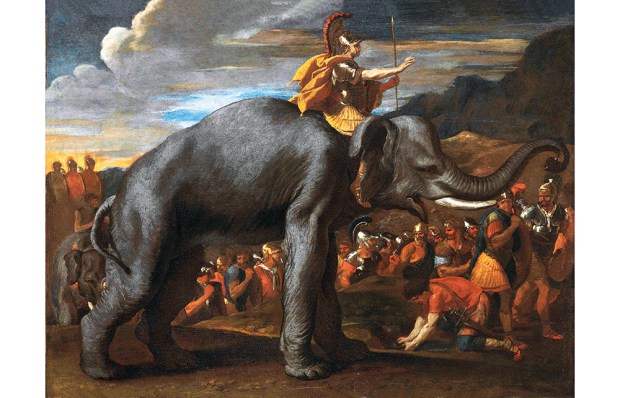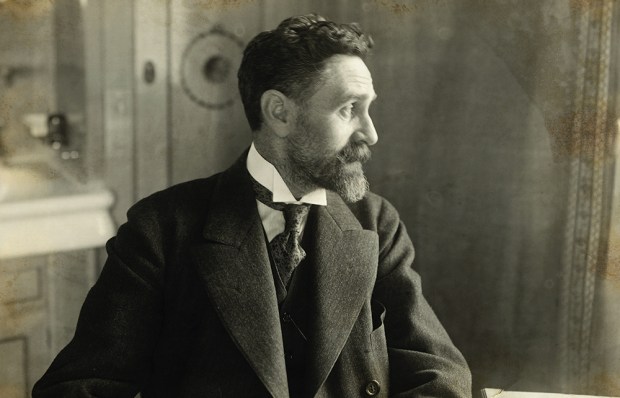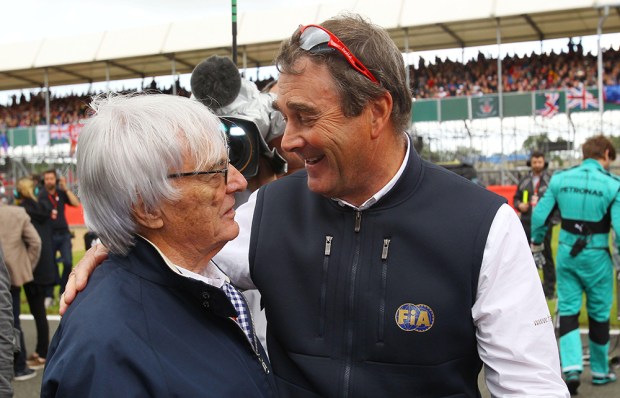In this frustrating book, Tomiwa Owolade sets out to establish that American attempts to identify and deal with issues of race are irrelevant to those of Britain. His basic case is that even if it might exist in America, structural racism based on colour is not found in Britain, and he criticises a significant number of people of colour, on both sides of the Atlantic, who’ve argued that it is. He believes that looking at the lived experience of people should be the starting point; and that the lived experience of black Britons is determined by nationality (and class) more than it is by race. That’s fair.
Owolade asks us to accept that the experience of a significant percentage of blacks in Britain as descendants from immigrants and not from enslaved people is radically different. Differentiating us from America makes our national origins readily accessible, and we should rejoice in that. Owolade is right that people of colour should celebrate the country that is now home as much as they might that of their ancestral origin. But it’s an oversight to fail to understand the traumatic legacy of living perpetually with anticipated slurs, suspicion or blatant dislike if you seek to explain some of the underlying tension between blacks and whites in any nation, or to create improvement. No, Britain is not America. It isn’t France, either; yet frustrations from the black shared experience are undoubtedly similar, even if responses across nations are quite distinct.
As Owolade says, context is all. He rightly suggests that we in Britain have our own pivotal moments – such as the Grenfell fire, the appalling treatment of the Windrush generation and their relatives, and the killing of Stephen Lawrence. Was it necessary to import the additional trauma of George Floyd’s murder to get us to deal with the issues we face? Well, women worldwide benefited to some extent from the death of Emily Wilding Davidson under the king’s horse at Epsom: it accelerated the recognition that women in any democracy ought to be given the vote.
Yet, despite the book’s hedging subtitle, Owolade thinks the principles of the BLM movement are not relevant to Britain. Seeing the movement as having gained undue global prominence after the murder of Floyd, he castigates David Lammy MP for daring to say: ‘George Floyd could have been me.’ That seems to me superficial. It’s the black experience that Lammy was explaining as being shared; and this experience is not just of thwarted or restricted opportunity but also an underlying and deeply felt trauma. Elsewhere, Owolade has argued that denial of opportunity isn’t reserved to blacks, citing racism against Travellers and the Irish by way of example. But the ‘othering’ of one group of people doesn’t negate the reality of experience of any other.
Owolade wonders why the reaction to Floyd’s death was global. Part of the answer lies, obviously, in video’s viral reach. Another part might lie in the point made by the writer Bonnie Greer, who reminds us that when black enslavement was at its peak, transportation was not only to the USA but also in huge numbers to South America and the Caribbean, and that ships travelled between Portugal, France, the Netherlands and Britain. So when America triggers a concern, its impact reverberates widely.
The argument in this book is reminiscent of those who ‘don’t see colour’: ‘You’re British. That’s all I see.’ But sometimes I want to be seen. Black women buying cosmetics, who had been told there was no call for makeup of their colourful choice, joyously celebrated the arrival of Rihanna’s (commercially successful) Fenty makeup range, inwardly screaming: ‘At last, we’re seen!’ Being excluded from access to makeup is hardly traumatic. But statistics show that medical interventions have also, dangerously, not ‘seen’ race. Black mothers have been ignored and traumatised when they complain that their babies are dying because of improper diagnoses through lack of racial awareness. Inadequately trained doctors, for example, ‘look out for pink blotches’ or recognise jaundice by yellow colouring. People of colour need to be seen.
The book also reads at times like an exercise in victim-blaming – if, indeed, the bold who dare to speak out about shared trauma are victims rather than survivors. Having tried to categorise different types of ‘blackness’ to demonstrate that the range encompassed renders the term ‘black’ almost meaningless, Owolade argues that it’s those who focus on racial ideology who are the problem. He writes: ‘The more we despise racial thinking the more we cling to it.’ But it’s not clear who ‘we’ are in this context. If it’s mankind generally, then one could applaud its fairness. If he’s talking about those lumped together as ‘black’ , it would be difficult for them to forget racism. They wake up each morning dealing with its issues.
Perhaps it is useful to avoid the extreme reactions that some nations adopt before they embrace change. Historically, the French have not been wary of revolution. The bloody legacy of the Algerian war and uncomfortable relationship with North Africa has transported insoluble ingredients to the French cauldron, which frequently appears close to boiling over.
America’s veneration of the Second Amendment, alongside white Americans’ historical complicity in enslavement, lynching, property destruction and police homicides, raises the nervous prospect of retaliatory violence. Black America learns hard lessons from internecine gang battles. The BLM movement isn’t a call to racial civil warfare: it’s a call for structural change in the hopes of avoiding it.
A critical difference between Britain and the US, and a useful distinction from France, is that both black and white Britons have had a better ability to ‘read the room’: to see where the tripwires are and to defuse them with relatively less violence. Queen Victoria famously steered the royal family around the disastrous series of uprisings that swept Europe, and British decolonisation was earlier and arguably less bloody than France’s or Belgium’s.
Owolade forgets the reasons that, after the second world war, the peoples of the Empire, when asked to come and help rebuild a Britain which they too loved, rallied willingly. The rights of British citizenship were considered to extend to them and didn’t need expressly to be written down. Incomers felt so close to the mother nation that they’d named their children Winston and Livingstone after her leading figures. So when these sons and daughters of Empire were met with signs denying them rights to housing and were spat upon and denigrated, they felt a massive sense of betrayal.
Trying to dismantle perspectives that don’t support his, Owolade criticises Kehinde Andrews’s view that black people need to build their own institutions and create safe spaces. He calls that affirmation ‘hollow’. Black people constitute only 4 per cent of the population in Britain, so creating institutions will not change the fact of blacks being a minority. That is to misunderstand the denigration of rights. To be treated as a minority doesn’t mean you have to be in the minority, or that sensible accommodation should not be made for minorities – that being the mark of a civilised society.
In his chapter on ‘mixed race’, Owolade helpfully looks at varying characteristics of different cohorts of black person. With their blends of distinct cultural identities, he shows how a black person may ‘other’ people of similar colour in precisely the same way as a white person would: nationality and cultural groupings can be more powerful differentiators than colour. Cultural recognition of mixed-race people demonstrates both the importance of the individual and that the designation of race, by colour, is also an idiotic construct. Yet to encourage ‘blacks’ not to bond around their trauma but to ‘focus on the positive’ is glib. Imagine exhorting Jewish people to ‘get over’ the Holocaust.
Owolade makes the optimistic argument that by accepting that black British people are already integrated into British society we can build an effective form of anti-racist politics. But who is the audience? Black British people long hoped that this was understood. Racists, and those who court them, are hardly likely, ever, to accept it.
Got something to add? Join the discussion and comment below.
Get 10 issues for just $10
Subscribe to The Spectator Australia today for the next 10 magazine issues, plus full online access, for just $10.
You might disagree with half of it, but you’ll enjoy reading all of it. Try your first month for free, then just $2 a week for the remainder of your first year.














Comments
Don't miss out
Join the conversation with other Spectator Australia readers. Subscribe to leave a comment.
SUBSCRIBEAlready a subscriber? Log in